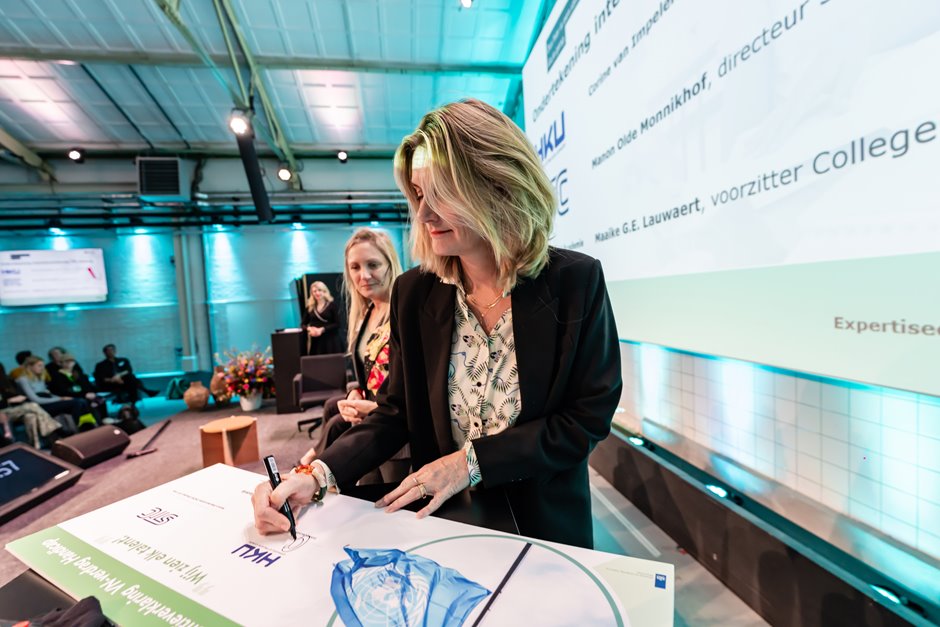Recent studies indicated that an average 1 out of 5 students in higher and intermediate vocational education is studying with special needs. This articulates the urgency of working on an inclusive educational approach that meets the diverse needs of students, while simultaneously contributing to a more fair and accessible learning environment.
Foundation for inclusive and accessible education
The UN Disabilities treaty offers a foundation for inclusive and accessible education. In treaty task groups, efforts are made to realise practical solutions, such as increasing the flexibility in curricula and better provision of information.
Edwin Jacobs, member of the HKU Executive Board: ‘Feeling welcome and at home, being seen and heard from a basis of equality: that is what we are working on at HKU. Inclusion is for everyone, regardless of functional impairments, neurodivergence, gender, ethnical background, sexual orientation or age. We want to create room for a new generation of creators, with equal opportunity for everyone at HKU to grow into the creative professional they want to be.
Focus point
Diversity and Inclusion is one of the focus points, called ‘guiding lights’ at HKU. This means that this theme is a main thread in all of HKU’s policies and activities. HKU supports students with, among other things, help with personal circumstances, finding the right guidance, personalised facilities, and initiatives such as the support desk.
Read more
Read more about our projects, tracks, research and student works. Or read the stories of the visually challenged Stan Verstegen, Ilse and her support dog at HKU and Lee who has ADHD.
